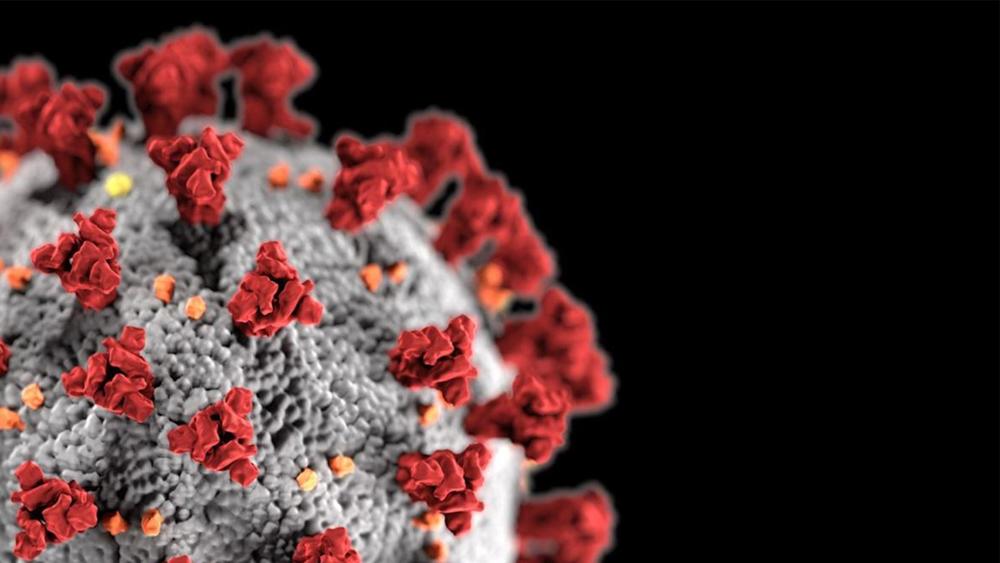
Section Branding
Header Content
Flu and COVID cases are rising. Here's what you can do to protect yourself.
Primary Content
LISTEN: Flu and COVID-19 infections have been increasing for weeks across the U.S., and health officials predict infections will continue to grow. GPB's Peter Biello speaks with Dr. Carlos del Rio of Emory University about the current outbreak.

Flu and COVID-19 infections have been increasing for weeks across the U.S., with high levels of flu-like illness reported in 31 states, including Georgia just before Christmas. New York City last week instituted a mask mandate for the city’s 11 public hospitals and similar measures were ordered at some hospitals in Los Angeles and Massachusetts. Health officials predict infections will continue to grow. For more on this, we turn to Dr. Carlos del Rio, Distinguished Professor of Medicine in the Division of Infectious Diseases at Emory University School of Medicine. He spoke with GPB’s Peter Biello.
Peter Biello: So both flu and COVID-19 are rising at the same time right now. Some public hospitals across the country are returning to some of the measures we saw in 2020. What can you tell us about what hospitals are doing in Georgia?
Carlos del Rio: Well, it's different hospitals doing different things. Some hospitals ... aren't seeing more patients than others. What we're seeing mostly right now in most hospitals is an increase in flu. Flu is pretty common. People were testing about 1 in 3 testing positive for flu. As far as COVID, it's only about 1 in 10 testing positive. The key for both diseases is people should be vaccinated. Because when you see people that are vaccinated for flu or with the updated COVID monovalent booster, that what you see is people get infected, but they're not getting sick, they're not ending up in the hospital. They get sick. I mean, they feel bad. Don't take me that they're not going to feel bad, but they're not going to end up in the hospital. They're not going to end up in the ICU. They're not going to end up critically ill.
Peter Biello: How much of a factor is RSV right now?
Carlos del Rio: RSV is currently not much of a factor. We're not seeing a lot of RSV.
Peter Biello: What are vaccination rates like for flu and COVID-19 in Georgia right now?
Carlos del Rio: They're pretty low. They're lower than we would like them to be. They're in the maybe 20% to 30% in the flu and maybe about in the teens for COVID.
Peter Biello: Okay. And is it too late to get vaccinated?
Carlos del Rio: It's not too late to get vaccinated. The other thing I want to talk about is not only vaccines. For both diseases, we have treatments, right? You should get treated if you get infected. Again, I go back to my personal experience. When I had flu, I got tested. I started with Tamiflu with oseltamivir and I did quite well.
Peter Biello: There are drugs specifically for COVID, like Paxlovid. How effective is that?
Carlos del Rio: Oh, they're pretty effective as well. I mean, they're pretty effective, again, in preventing severe disease, hospitalization and death. So people that are eligible for them, in general, we like to reserve them for people over the age of 60.
Peter Biello: Mm-hmm. And are people noticing that they're sick in time to qualify for drugs like Paxlovid?
Carlos del Rio: You know, they are, but they're not going into treatment. And— and they're not — they're not thinking the treatment is going to help them. And that's what I worry about. So I think we need to get the message out that if you are infected, you should talk to your health care provider, and you should try to access therapy as soon as possible, because that makes a big difference.
Peter Biello: How effective are the over-the-counter COVID-19 tests?
Carlos del Rio: They're pretty good. They're actually still very good. And so is — there's one test commercially available that actually has both COVID-19 and flu included. And it's very good at detecting either of those diseases.
Peter Biello: So what I'm hearing you say is that if you're sick, get tested. If you're positive, seek treatment. And if you're not sick yet, get vaccinated because that will help prevent serious illness.
Carlos del Rio: Absolutely. You just summed it up very well.
Peter Biello: Well, how long do you anticipate this current outbreak of viruses will last?
Carlos del Rio: Well, typically respiratory virus season lasts anywhere between four to six weeks. But again, if I can tell you one thing we've learned from respiratory viruses, whether it's COVID or influenza, is you don't make predictions because it's really hard to predict.

